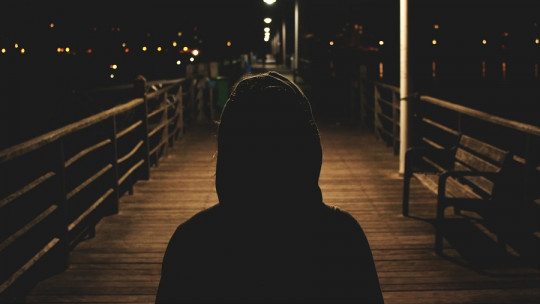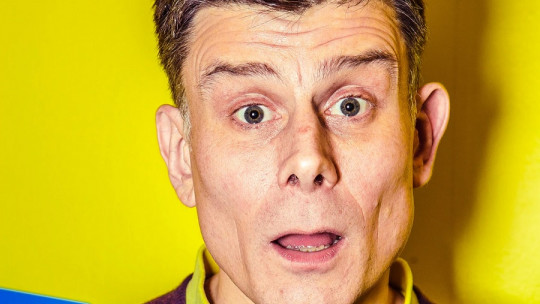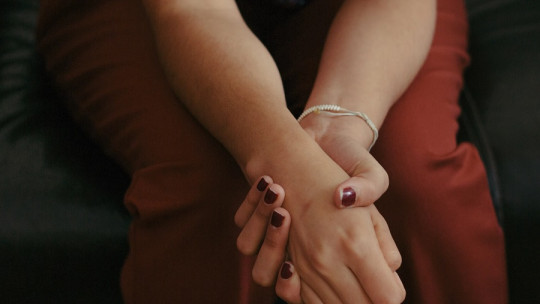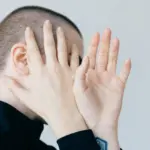
Have you ever heard people talk about the extreme fear of being alone? If we take into account the society in which we live, where so little work has been done on self-acceptance, it is not such a rare disorder.
In this article we will reflect on the concept of loneliness and its implications, and also, We will see what autophobia consists of what are some of its symptoms, its possible causes and treatments.
Autophobia: a specific phobia
The word autophobia comes from the Greek “auto” (meaning “alone”), and the word “phobia” (meaning “fear”). Thus, autophobia literally means “fear of oneself.”
However, in psychology this term does not mean exactly this, but rather a fear of the possibility of being alone with oneself (physically speaking) Specifically, autophobia is a rare phobia, which consists of an intense, irrational and disproportionate fear of the possibility of being physically alone. Other names for autophobia are: monophobia or isolophobia.
This irrational fear is mainly due to an intense fear of the possibility of being ignored, of feeling unloved, or of suffering some type of threat from an intruder. In short, people with autophobia are afraid of being alone.
Like any specific phobia, where the stimulus is the fact of being physically alone, It is an anxiety disorder The symptoms caused by autophobia are diverse in nature: psychological, physical and emotional.
Beyond feeling alone
We have all felt alone at some point in our lives, either because we are really physically alone at a given moment, or because we feel unloved or with no one to turn to (that is, a loneliness that is more emotional than physical).
However, autophobia goes beyond this simple fact, since the person comes to feel real anxiety about the possibility or the actual fact of being physically alone. That is, she is terrified of loneliness. So, Symptoms appear when the individual is left physically alone or when they believe that this situation may occur soon
In short, feeling alone (which is a common symptom in many people, and does not imply major pathology) is not the same as suffering from autophobia, a real, specific and disabling phobia. Its intensity is much greater.
Low tolerance for loneliness
It is curious how the society in which we live “sells” us the idea that we must be autonomous, empower ourselves, fend for ourselves, etc., and yet the same culture shows increasing difficulties in facing loneliness.
We see this in couples who cannot live without each other, in extremely toxic dependency relationships, etc. We have been made to believe, especially as a couple, that we need someone to “complete” us, when in reality we do not need anyone, but we simply have the option of enjoying life with someone who complements us.
All of this ends up generating in the person a feeling of anguish in the face of loneliness, of a constant need to look for the other, to “connect” with others through networks, the telephone… It is as if we were afraid to bear ourselves. This, taken to the extreme and added to other factors, can trigger a disorder such as autophobia.
Symptoms
Now that we have briefly known the concept of autophobia, let’s get to know its most frequent symptoms. Thus, autophobia involves a series of symptoms on a physical, psychological and emotional level, such as the following.
1. Insecurity
One of the typical symptoms of autophobia is great personal insecurity. This insecurity translates into difficulties in (or inability to) be alone with oneself
Many times, in this type of patients, low self-esteem and the constant need for the approval of others are also associated. There can also be (and in fact, is common) a great emotional dependence. The person “cannot” do things alone, by themselves and without the help or approval of others.
2. Irrational ideas
Associated with autophobia, irrational ideas or thoughts such as “I’m going to die” or “they’re going to hurt me” may also appear when the person is alone. So, this You may even fear for your life, in extreme cases
3. High anxiety or fear
Anxiety, in fact, is the main symptom of autophobia, which is triggered by the possibility or fact of being physically alone and leads to a situation of loss of control over the body.
4. Physical symptoms
Physical symptoms, as in any specific phobia, also appear. These can vary greatly from person to person, but generally include: palpitations, dizziness, nausea, vomiting, excessive sweating, hypertension, tachycardia … In a certain way, the person somatizes that intense fear, and this is translated through the body.
Causes
The causes of autophobia, as in all specific phobias, can be very varied, and in some ways, they are unknown. However, we can hypothesize some; Mainly, at its origin we find a traumatic event related to loneliness; for example, the fact of having suffered an abusive situation, of not having been able to get help, of having been robbed or robbed, etc. That is, the fact of having experienced a negative and traumatic situation while alone. Besides, If these negative experiences have been experienced in childhood, the psychological repercussions can be even greater
On the other hand, and in a certain way, autophobia may also have been “learned” through observing other people with autophobia, or having heard on the news about people who have suffered a traumatic or violent situation while alone, etc. Furthermore, also There may be a certain biological predisposition (vulnerability) to suffer from an anxiety disorder which, together with other factors, ends up causing this specific phobia.
Furthermore, it is a somewhat particular phobia, since in a certain way, the feared stimulus “is oneself” (although one does not fear one’s own person, but rather the absence of others). That is, one fears what can happen when one is alone, and one fears one’s own loneliness. It is paradoxical.
Treatment
The treatment par excellence for specific phobias is exposure treatment. In the case of autophobia, the patient would be exposed to being alone in certain spaces (for example, her house), and this time of solitude would be increased, through a hierarchy of items.
On the other hand also The patient’s self-esteem and emotional dependence must be worked on through exercises that empower you and highlight your strengths and capabilities. Irrational and negative thoughts should also be addressed, so that they can be replaced by more optimistic, realistic and adaptive thoughts.
The goal of all these techniques is that the patient “understands” and sees for himself that nothing bad happens from being alone (through exposure and cognitive therapy), and you may even have very positive experiences while doing it. Furthermore, loneliness is also a source of riches and learning, and opens the door to new ways of tolerating oneself, knowing oneself and loving oneself.
At the root of the problem
It is also important to highlight that it will be of vital importance analyze each specific case, and this implies studying in depth the causes (or causes) that have caused autophobia to be able to work on them.
That is, treat the experience and trauma of the traumatic event (with the relevant psychological techniques) if this has been the cause of the phobia, dysfunctional thoughts, dependent personality, poor self-esteem, etc.








